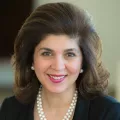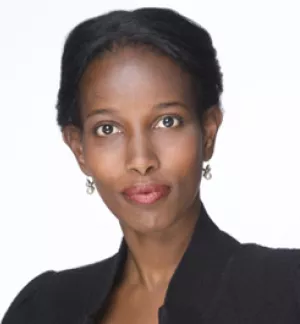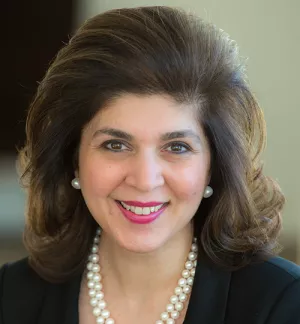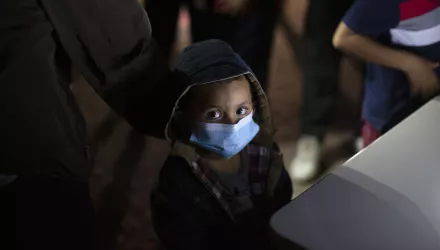In response to the Trump administration’s rollout of aggressive policies on immigration and travel, Ayaan Hirsi Ali and Farah Pandith—both senior fellows with the Belfer Center’s Future of Diplomacy Project—have shared their contrasting views in media interviews. See excerpts below.

Ayaan Hirsi Ali
“[President Trump’s focus on Countering Islamic Extremism] is a huge step in the right direction....We are not only fighting the side-effects of Islamic extremism but Islamic extremism itself as an ideology.” (Australian Broadcasting Company 2/3/17)
“President [Barack] Obama, and before him President [George W.] Bush, stood before us on world platforms and said, ‘Islam is a religion of peace.’ Excuse my language, but that’s bull—.” (Jewish Journal 11/22/16)
“ISIS and other extremists will recruit regardless of what we do and what we say. It’s just who they are and what they do.” (ABC)
“[The executive order] was clumsy....Its poor execution was a gift to the president’s critics.” (Huffington Post 2/2/17)
“The problem of Islamist terrorism will not be solved by immigration controls and extreme vetting alone. That’s because the problem is already inside our borders.” (Huffington Post)
“The threat posed by [what Trump called] ‘the hateful ideology of radical Islam’ needs to be countered. American citizens—including immigrants—must be protected from that ideology and the violence that it promotes.” (Huffington Post)
“As an immigrant of Somali origin, I have no objection to other people coming to America to seek a better life.... My concern is with the attitudes many of these new Muslim Americans will bring with them.” (Huffington Post)
“Trump was right to argue...for a commission of some kind—I would favor congressional hearings—to establish the full magnitude and nature of the threat....what is needed is cool, comprehensive legislation.” (Huffington Post)

Farah Pandith
“The United States won’t soon repair the damage done by Trump to its image among Muslims. We’ve spent billions since 9/11 trying to convey a clear picture of who we are as Americans and to convince Muslims that the United States is not ‘at war’ with them.” (Al-Araby 1/31/17)
“[The Trump executive orders] will not keep America safer.” (Al-Araby)
“We have to look at the reality of how people have gotten radicalized. The thing we must do is to puncture the us-versus-them narrative. Instead, [the ban] allows it to bloom.” (Al-Araby)
“[Trump's order] doesn't have any intellectual rigor behind it in terms of what will actually keep America safe. It shows a misfire in understanding what the actual problem is.” (Al-Araby)
“I have little doubt that the Islamic State and other groups will recruit more Muslim youths, thanks to Trump’s anti-Muslim tirades...The terrorists explicitly appeal to supporters and potential recruits by touting the war they are fighting against an America resolutely hostile to Muslims.” (Washington Post 2/2/17)
“Ideas have no borders and you can’t build an idea wall. You can’t ban all of the countries in the world where these bad ideas are sprouting.” (CNN State of the Nation 1/29/17)
“I think the measure of success and seriousness of the Trump doctrine on terrorism really will be on how serious they are with regard to Saudi Arabia where [radical Wahhabi] ideas have been sprouting for decades.” (CNN)
“We need to have Muslims around the world working with us to stop recruitment and the way to do that is engage them. [Without] trust in the government, you can’t engage them.” (CNN)
"Immigration and Terrorism: Comments from Farah Pandith and Ayaan Hirsi Ali." Belfer Center Newsletter. Belfer Center for Science and International Affairs, Harvard Kennedy School. (Spring 2017).







